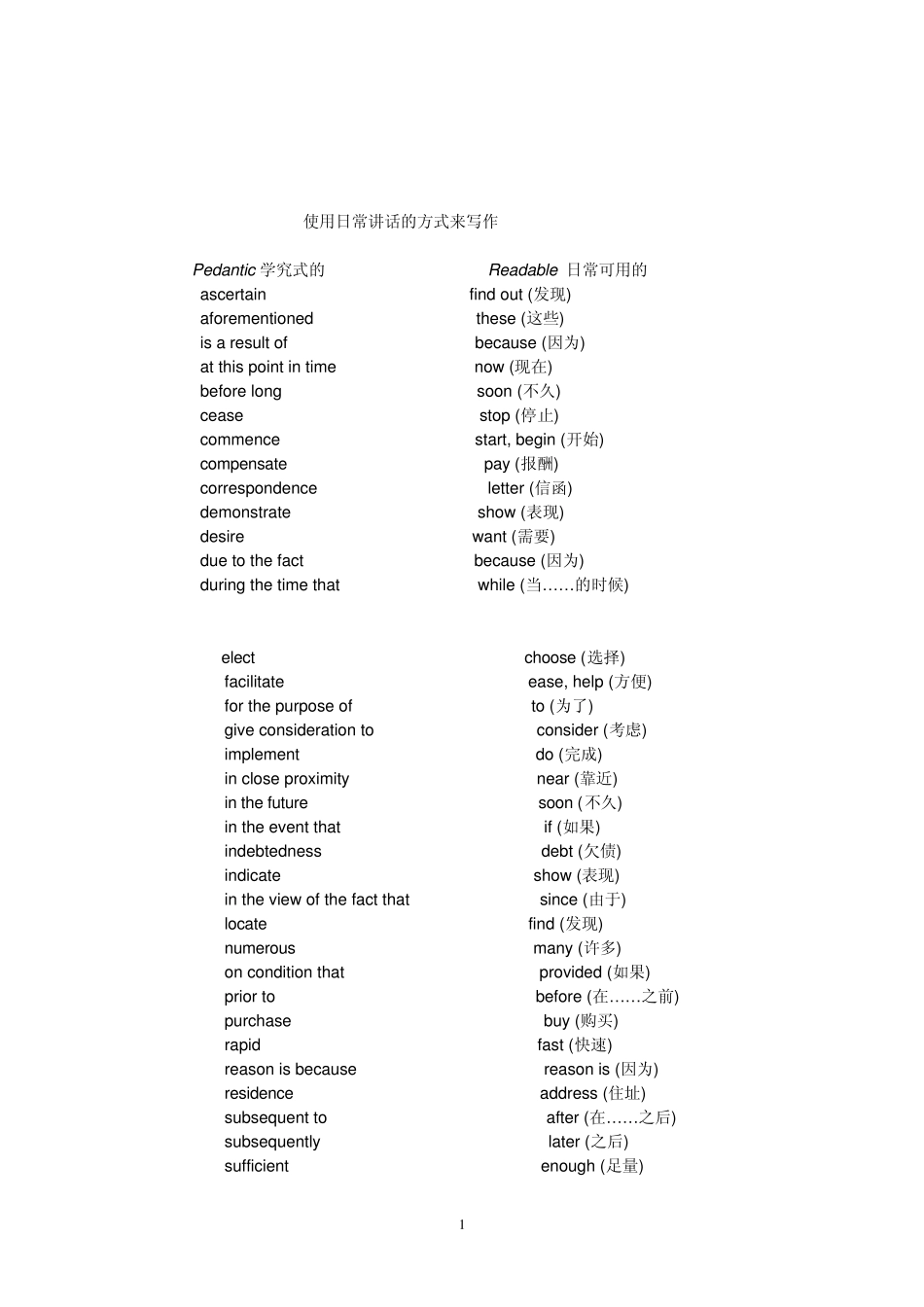1 使用日常讲话的方式来写作 Pedantic 学究式的 Readable 日常可用的 ascertain find out (发现) aforementioned these (这些) is a result of because (因为) at this point in time now (现在) before long soon (不久) cease stop (停止) commence start, begin (开始) compensate pay (报酬) correspondence letter (信函) demonstrate show (表现) desire want (需要) due to the fact because (因为) during the time that while (当……的时候) elect choose (选择) facilitate ease, help (方便) for the purpose of to (为了) give consideration to consider (考虑) implement do (完成) in close proximity near (靠近) in the future soon (不久) in the event that if (如果) indebtedness debt (欠债) indicate show (表现) in the view of the fact that since (由于) locate find (发现) numerous many (许多) on condition that provided (如果) prior to before (在……之前) purchase buy (购买) rapid fast (快速) reason is because reason is (因为) residence address (住址) subsequent to after (在……之后) subsequently later (之后) sufficient enough (足量) 2 terminate end (结束) utilize use (使用) vehicle car, tool (汽车,工具) 标点的使用 逗号 逗号是标点中最广泛使用和滥用的。以下是具体的指导: 1. 在长的引导句或短语后加逗号。 Contrary to common belief, English women do not ware tweed nightgowns. 不同于通常的观念,英国妇女不穿苏格兰粗呢睡衣。 I’ve been on so many blind dates, I should get a free dog. 我已经相亲许多次了,应该已经找到合适的人了 如果引导句是短的,就不需要逗号了。 After the dinner I went home. 晚饭后,我回家了 2. 使用逗号避免混淆。试着不看逗号朗读这句话,你会听出问题来的。 Once you understand, the reason is clear. 一旦你理解了,理由也很清楚了。 If he chooses, William can take over the company. 如果威廉愿意的话,他可以接管公司。 3. 使用逗号来分开所列的项目。 The only way to keep your ...


